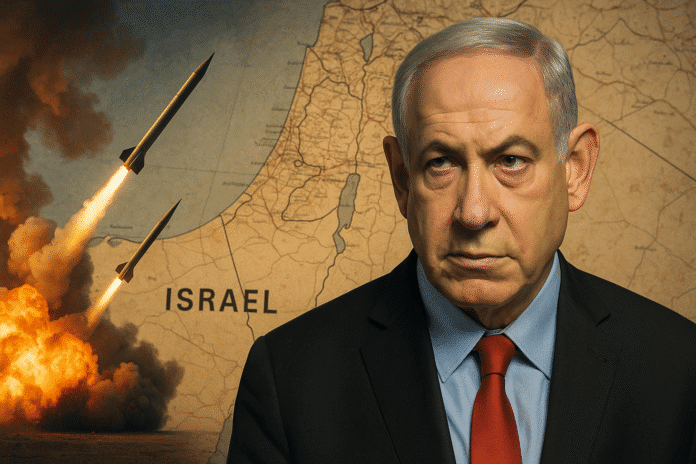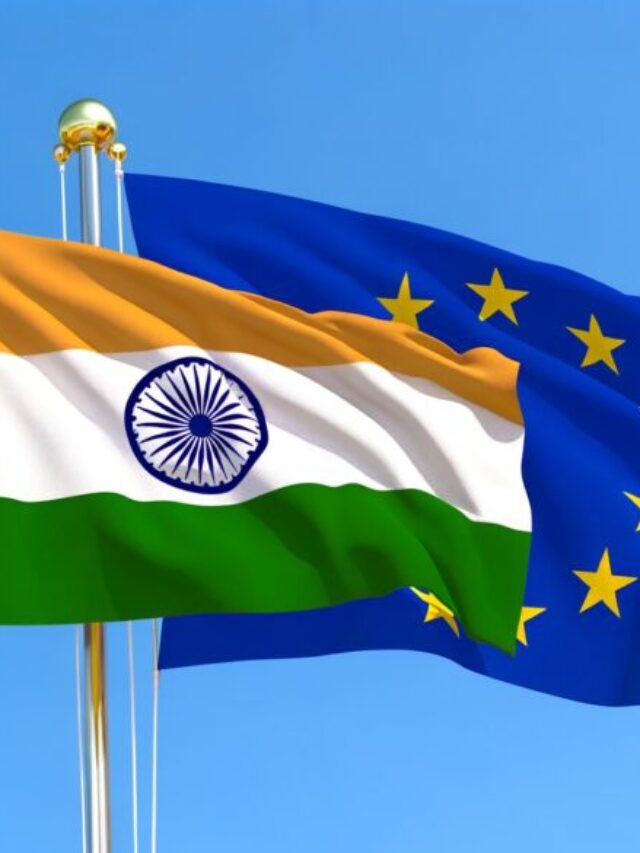Israel, officially the State of Israel, is a small but geopolitically significant nation in the Middle East. Despite its size, it plays an outsized role in global politics, religion, innovation, and regional conflict. From its ancient history and diverse population to its technological advancements and current war with Iran and the Gaza Strip, Israel continues to shape and be shaped by its unique circumstances.
This article provides a comprehensive look at Israel’s geography, history, religion, politics, economy, society, and the evolving conflict as of 2025.
Geography and Location
Israel is located in the Levant region, along the eastern shore of the Mediterranean Sea. It shares borders with Lebanon to the north, Syria to the northeast, Jordan to the east, and Egypt to the southwest. The Palestinian territories, including the West Bank and Gaza Strip, also lie within or adjacent to Israel’s territory.
Capital and Major Cities
The declared capital of Israel is Jerusalem, which serves as the seat of government. However, due to international disputes over the city’s status, most foreign embassies are located in Tel Aviv, Israel’s second-largest city and its commercial, financial, and technological hub. Other major cities include Haifa, Beersheba, and Eilat.
Languages
Hebrew is the official language of Israel, with Arabic also recognized for official use. English is widely spoken and used in business, education, and tourism.
Historical Background
Foundation of the State
The modern State of Israel was established on May 14, 1948, following the end of British rule in Palestine and the United Nations’ 1947 Partition Plan, which proposed separate Jewish and Arab states. The declaration led to regional wars and decades of conflict, particularly with the neighboring Arab states and Palestinian population.
The Balfour Declaration
Issued in 1917 by the British government, the Balfour Declaration expressed support for the establishment of a “national home for the Jewish people” in Palestine. This document played a significant role in the eventual creation of Israel.
The Six-Day War
In 1967, Israel fought a war against Egypt, Syria, and Jordan, known as the Six-Day War. Israel captured significant territories including the West Bank, Gaza Strip, East Jerusalem, the Golan Heights, and the Sinai Peninsula (later returned to Egypt). These territorial changes continue to impact the political landscape of the region.
Role of the United Nations
The United Nations General Assembly approved Resolution 181 in 1947, which recommended the partition of Palestine. The UN has since remained involved in monitoring the conflict and humanitarian conditions, although Israel has often criticized the organization for perceived bias.
Israeli-Palestinian Conflict and Political Disputes
The Israeli-Palestinian conflict centers on competing national claims to the same land. Major points of contention include the status of Jerusalem, the rights of Palestinian refugees, and Israeli settlements in the West Bank.
Disputed Borders
Israel’s borders remain a subject of international debate. The occupation of the West Bank and East Jerusalem is considered illegal under international law by many global bodies, though Israel disputes this. The Gaza Strip, while no longer under direct occupation, is blockaded and frequently subject to military conflict.
West Bank and Gaza
The West Bank is a landlocked territory home to over 2.5 million Palestinians and around 500,000 Israeli settlers. The Gaza Strip is governed by the militant group Hamas and has been the site of repeated wars and humanitarian crises.
The Israel Defense Forces (IDF)
The IDF is Israel’s military force, responsible for national defense and internal security. Military service is mandatory for most Jewish Israeli citizens.
Religious Importance of Israel
Israel holds profound religious significance for Judaism, Christianity, and Islam. Jerusalem is a focal point for all three faiths.
- For Jews, it is the site of the ancient Temples and the Western Wall.
- For Christians, it is where Jesus lived, was crucified, and resurrected.
- For Muslims, it is home to the Al-Aqsa Mosque and the Dome of the Rock, from which Prophet Muhammad is believed to have ascended to heaven.
Religion plays a major role in Israeli politics, often influencing policy decisions, public debates, and national identity.
Government and Political Structure
Israel is a parliamentary democracy with a unicameral legislature known as the Knesset. Citizens vote for political parties, and the government is typically formed through coalitions.
Current Leadership
As of 2025, Benjamin Netanyahu is serving as Prime Minister. He leads a right-wing coalition government with support from religious and nationalist parties.
Elections and Political Parties
Elections are held approximately every four years, using proportional representation. Major political parties include Likud, Yesh Atid, Religious Zionism, Shas, and United Torah Judaism.
Military Service
Military service is mandatory for Jewish citizens over the age of 18, with men typically serving around 32 months and women around 24 months. Arab citizens are exempt but may volunteer.
International Relations
Peace Treaties and Regional Diplomacy
Israel has signed peace treaties with Egypt (1979) and Jordan (1994). In 2020, under the Abraham Accords, Israel normalized relations with the United Arab Emirates, Bahrain, Morocco, and Sudan.
Relations with the United States
The United States is Israel’s most significant ally, providing military aid, diplomatic backing, and economic cooperation. The U.S. plays a key role in regional peace efforts and defense strategy.
Tensions with Iran
Israel’s relationship with Iran is extremely tense. The two countries are engaged in a growing conflict, especially over Iran’s nuclear program and support for armed groups in Lebanon, Syria, and Gaza.
Economy and Technology
Israel has a highly developed, innovation-driven economy. Known as the “Start-Up Nation,” it has one of the highest numbers of startups per capita in the world.
Key Industries
- High-tech and software development
- Cybersecurity
- Agriculture and water management
- Military and defense technologies
- Pharmaceuticals and medical devices
- Tourism
Water Technology
Due to its arid climate, Israel has pioneered technologies in desalination, drip irrigation, and water recycling, making it a global leader in water sustainability.
Major Exports
Israel’s exports include software, electronics, medical devices, agricultural products, and diamonds.
Culture and Society
Israel is a diverse society with a population composed of Jews from Europe, the Middle East, North Africa, Ethiopia, and the former Soviet Union, as well as Arab Muslims, Christians, Druze, and other minorities.
Cuisine
Israeli cuisine reflects its diversity, with influences from the Middle East, Mediterranean, North Africa, and Eastern Europe. Popular dishes include falafel, hummus, shakshuka, schnitzel, and sabich.
Holidays
Major national and religious holidays include Yom Kippur, Passover, Rosh Hashanah, Sukkot, Hanukkah, and Independence Day.
Education System
Israel boasts a strong education system, particularly in science, technology, engineering, and mathematics (STEM). Higher education institutions like the Hebrew University of Jerusalem and the Technion are globally respected.
Arab Citizens
Arab citizens of Israel make up about 20% of the population. While they have voting rights and access to public services, many report systemic discrimination in housing, employment, and education.
The 2025 War Crisis: Israel, Iran, and Gaza
Expansion of Conflict
In early 2025, a temporary ceasefire between Israel and Gaza collapsed, reigniting hostilities. This was followed by Israel launching “Operation Rising Lion,” a direct military campaign targeting Iranian nuclear sites in Natanz, Arak, and Bushehr. Iran responded with missile strikes against Israeli cities.
U.S. Involvement
The United States has increased military support to Israel, deploying naval destroyers, missile defense systems, and interceptors to assist in defending against Iranian attacks.
Humanitarian Situation in Gaza
The humanitarian situation in Gaza has deteriorated dramatically. Only 40% of water systems remain functional, leading to a critical water shortage. Food supplies are scarce, hospitals are overwhelmed, and aid organizations are warning of famine and disease.
International Response
The United Nations, European Union, and G7 nations have called for an immediate ceasefire and diplomatic de-escalation. However, the situation remains volatile, with potential for further regional spillover into Lebanon and Syria.
Conclusion
Israel stands as a nation of extraordinary complexity—one of spiritual significance, technological prowess, political tension, and cultural richness. As the 2025 conflict with Iran and Gaza deepens, Israel continues to be a focal point in international diplomacy, humanitarian concern, and security strategy.







